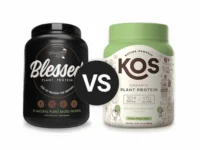Knowledge BaseYou're Questions Answered
Is protein powder halal?
Whether protein powder is halal depends on its ingredients and the processes involved in its production. Halal is an Arabic term meaning "permissible" according to Islamic law, and it applies to foods and beverages that meet specific criteria outlined in Islamic dietary guidelines. For a protein powder to be considered halal, it must not contain any prohibited (haram) ingredients and must be produced in a manner that complies with Islamic principles.
Key Considerations for Halal Protein Powder
1. Source of Protein
The primary ingredient in protein powder is the protein itself, which can be derived from various sources, including:
- Whey Protein: Derived from milk, whey protein can be halal if the milk is sourced from halal animals (cows that have not been improperly slaughtered) and the rennet used in cheese production (which may be part of the whey production process) is from halal sources1.
- Casein Protein: Also derived from milk, casein is halal under the same conditions as whey protein regarding the source of milk and rennet.
- Plant-Based Proteins: Proteins sourced from plants, such as soy, pea, rice, and hemp, are generally considered halal as long as they do not contain any non-halal additives2.
- Egg Protein: Typically considered halal, provided the eggs are sourced from halal animals and no non-halal ingredients are used in processing.
2. Additives and Flavorings
Protein powders often contain additional ingredients such as flavorings, sweeteners, stabilizers, and colorings. These additives must also be halal for the product to be considered permissible. Common concerns include:
- Gelatin: If gelatin is used as a stabilizer or capsule material, it must be sourced from halal animals.
- Alcohol: Flavorings containing alcohol are not halal. Some flavorings may use alcohol as a solvent, which is not permissible in halal products3.
- Enzymes: Enzymes used in processing, such as those for breaking down proteins, must be halal-certified.
3. Cross-Contamination and Processing
The manufacturing process must avoid cross-contamination with non-halal substances. This includes using equipment that has not been used to process haram products unless properly cleaned according to Islamic guidelines. Additionally, the entire production chain, from sourcing to packaging, should comply with halal standards4.
Halal Certification
To ensure that a protein powder is halal, it is advisable to look for products with a halal certification from a recognized certifying body. This certification indicates that the product and its production processes have been thoroughly inspected and comply with halal standards. Certification bodies, such as the Islamic Food and Nutrition Council of America (IFANCA) or Halal Certification Authority, provide these certifications.
- Al-Qaradawi, Y. (1997). The Lawful and the Prohibited in Islam. American Trust Publications.
- Riaz, M. N., & Chaudry, M. M. (2004). Halal Food Production. CRC Press.
- Hussaini, M. M. (1993). Islamic Dietary Concepts and Practices. Islamic Food and Nutrition Council of America (IFANCA).
- Ali, M. (2002). The Lawful and Prohibited in Islam. Islamic Book Trust.
Your Answer
We are a participant in the Amazon Services LLC Associates Program, an affiliate advertising program designed to provide a means for us to earn fees by linking to Amazon.com and affiliated sites.
